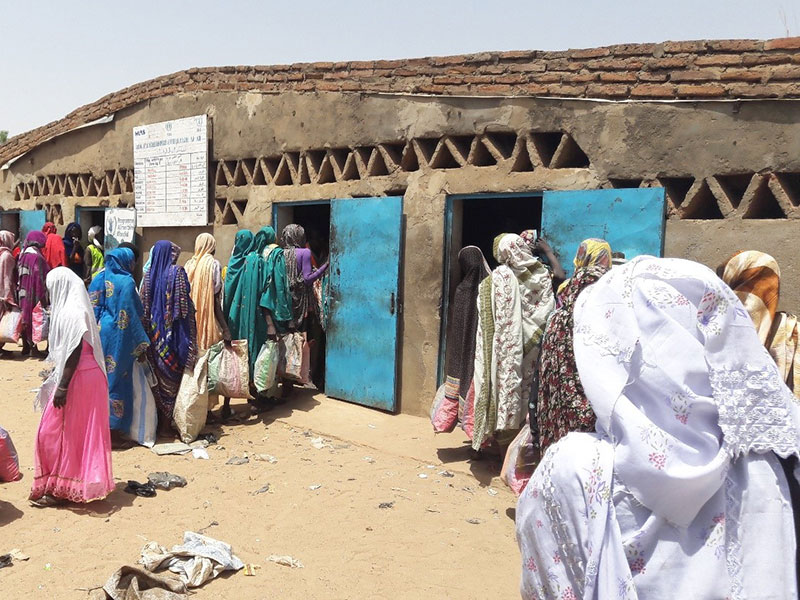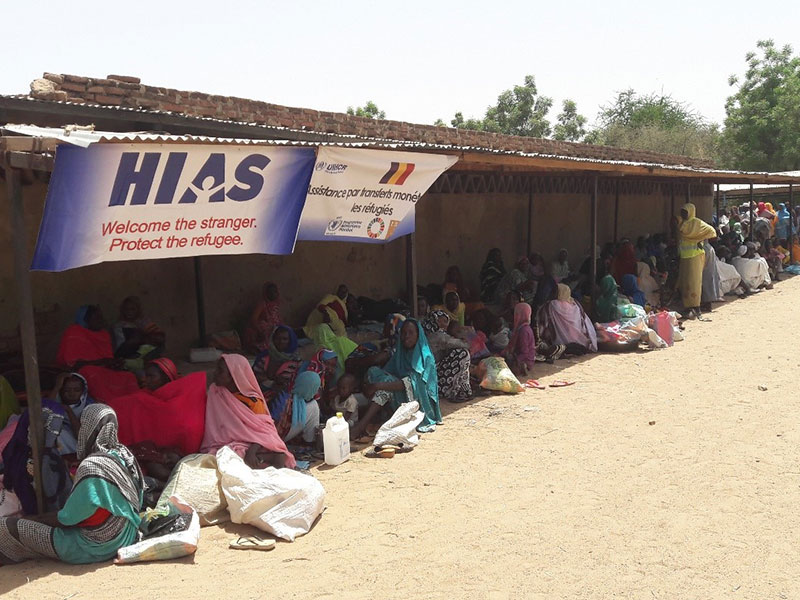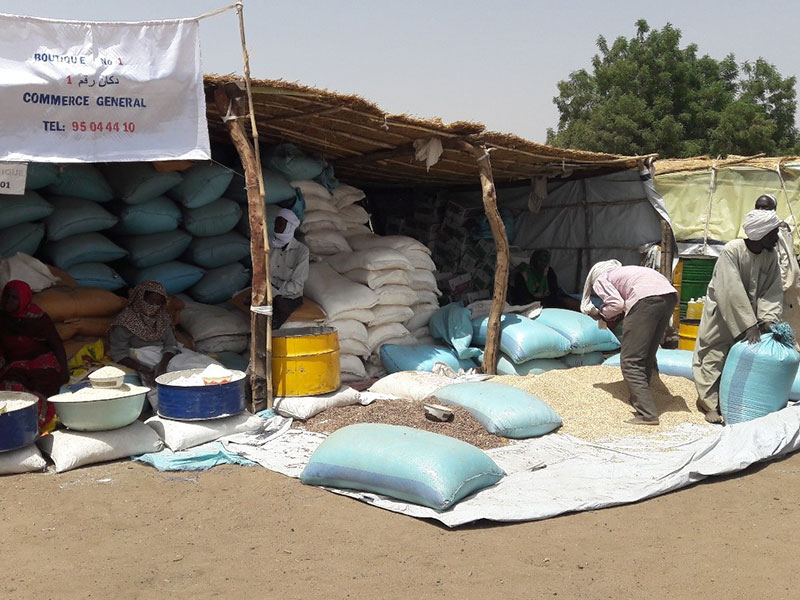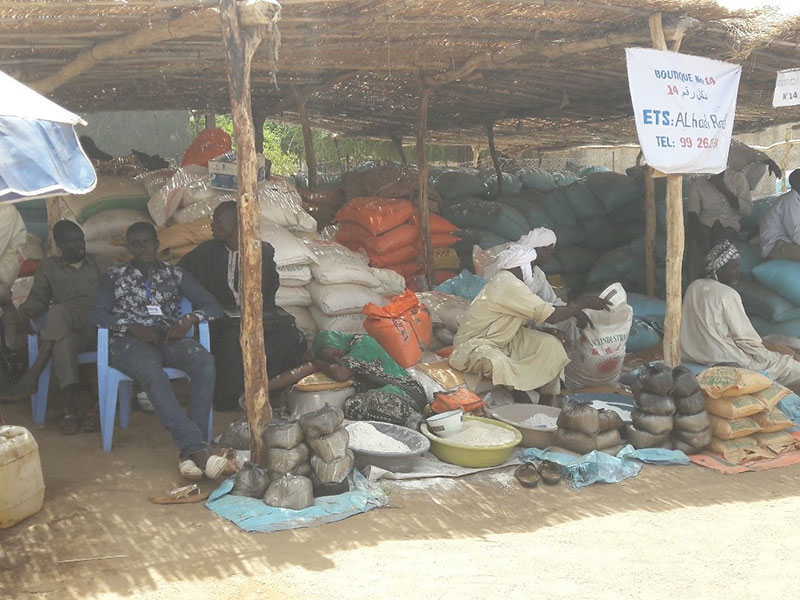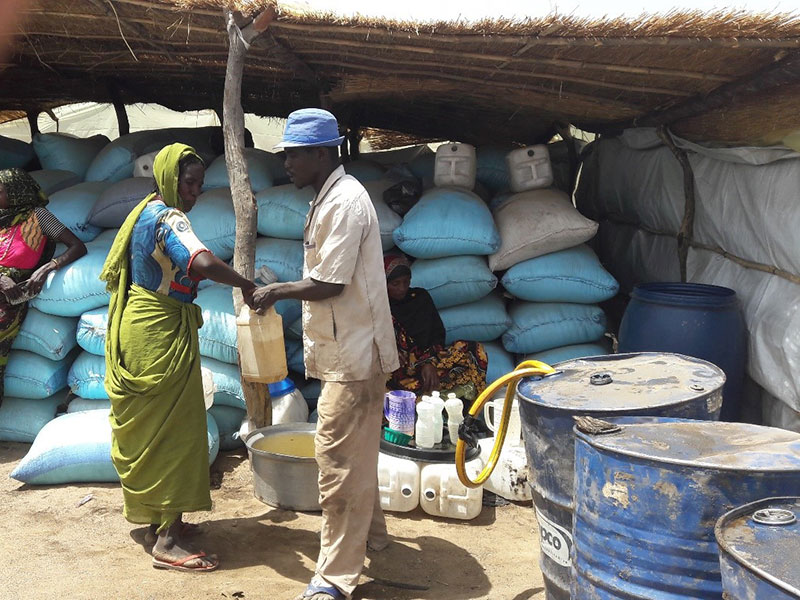New Food Distribution Program Increases Autonomy for Sudanese Refugees in Chad
By Gabe Cahn, HIAS.org
May 18, 2017
We often think about the consequences of fleeing one’s home country in terms of the physical items an individual is forced to leave behind. Lifelong homes, livelihoods, treasured possessions--these are among the things suddenly abandoned when one can no longer live without the threat of violence or discrimination.
But for many of the world’s more than 21 million refugees, something far less tangible is also surrendered on the path to safety. Upon finding refuge in a nearby country, many refugees find themselves in situations where they are not only dealing with the trauma of their journey, but also coping with the lack of day-to-day autonomy they once had.
Choices about employment, where to live, what to eat, and even when to go to market that were once ordinary are now made by a camp administrator many will never meet. Even minor details are suddenly out of their hands, challenging their sense of agency and control over their own lives.
To begin to address this autonomy deficit in refugee camps in eastern Chad, HIAS is partnering with the World Food Programme and UNHCR to implement a new model for food distribution. The introduction of cash vouchers, as opposed to directly supplying food rations to refugees, is part of a growing trend. The vouchers can be used to purchase a wide range of goods from authorized vendors, allowing for greater self-determination.
“Previously, we would give out things like flour and oil on specific days,” explained Joyce Kanja, country director for HIAS Chad. “The food was distributed at distribution centers and people would often have to wait for a long time.”
“Now, instead of standing in line and receiving a standard set of food items, refugees are able to choose what items are most needed and useful for their families, which is really empowering,” Kanja said.
These ‘cash-based transfers’ were developed by the WFP and can take several forms, including physical money, vouchers, and other electronic platforms such as special SIM or debit cards.
Starting on April 24, 2017, HIAS began implementing the new voucher-based food distribution system in the Goz Amir camp, marking the third location in eastern Chad where the organization has brought this model of self-sufficiency to Sudanese refugees. Ultimately, HIAS’ plan is to bring the system to all 13 locations where it is responsible for food distribution on behalf of the UNHCR and WFP in the region.
In the first week in Goz Amir, HIAS served more than 30,000 refugees from 15 food stalls set up by suppliers. There aren’t grocery stores set up in the camp, so suppliers from the region were brought in to offer items including rice, wheat flour, beans, sugar, and oil. This arrangement encourages peaceful cohabitation between the refugee population and surrounding community.
“One additional benefit of the CBT system is that it decreases the likelihood that certain items will run out, ensuring that people are able to access their full food rations,” said Kanja.
There was some concern among HIAS staff that moving to this new model would be complicated or unwelcome for some of the individuals who have been living in the camp for more than a decade and were used to the ration system.
“Because there are now a number of stalls that refugees can go to in order to choose their own food items, there was some worry about overcrowding or confusion,” noted Kanja. “But the staff did a fantastic job preparing the community for this change ahead of time, so the transition went really smoothly.”
Prior to the launch of the exercise, HIAS personnel went through a series of trainings offered by WFP. Then when it came time to launch, HIAS staff oversaw implementation of the new system by managing crowds and ensuring that refugees were able to access food and resources quickly and calmly.
Taking a step back to evaluate the broader impact of the new program, Kanja noted that “the psychological benefits of increased self-sufficiency and autonomy—even from something as simple as the ability to decide what food to collect for your family—are hard to quantify.”
To learn more about HIAS’ work in Chad, check out our blog.
